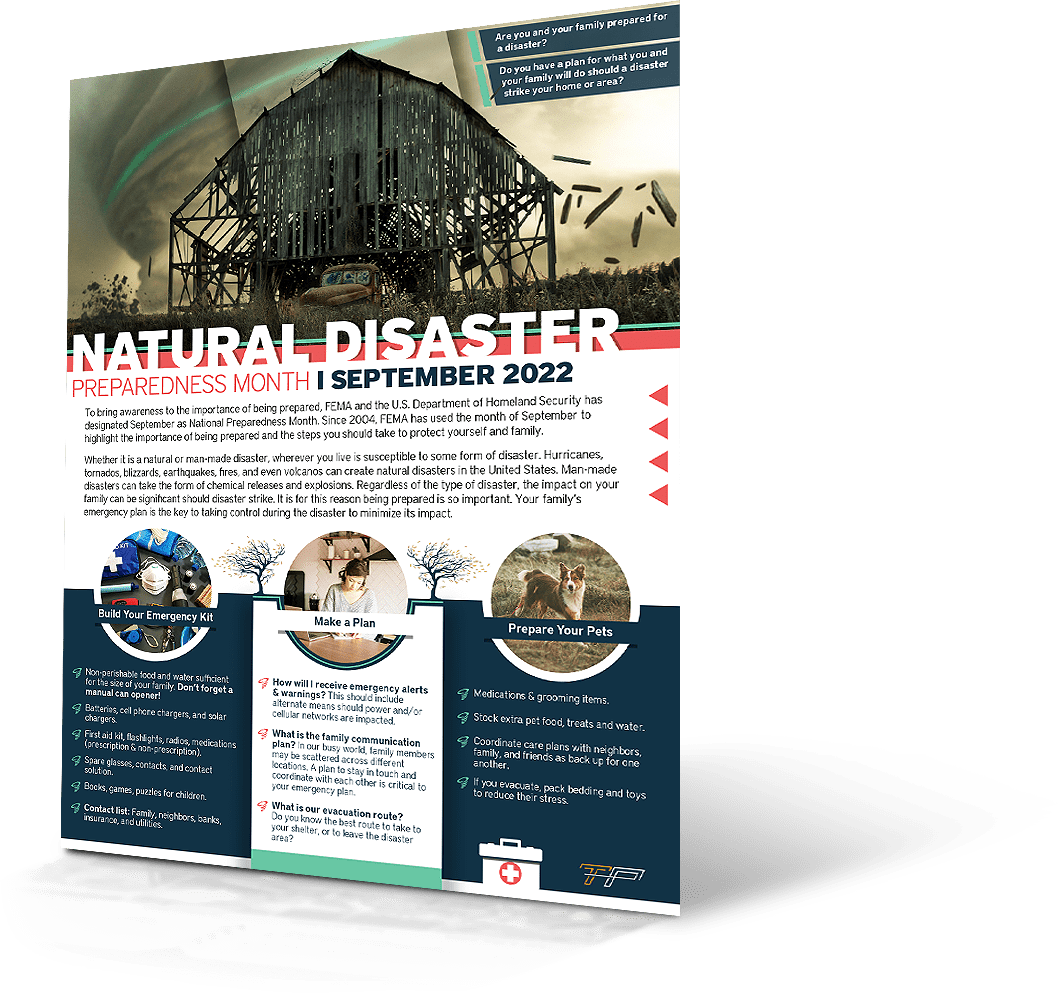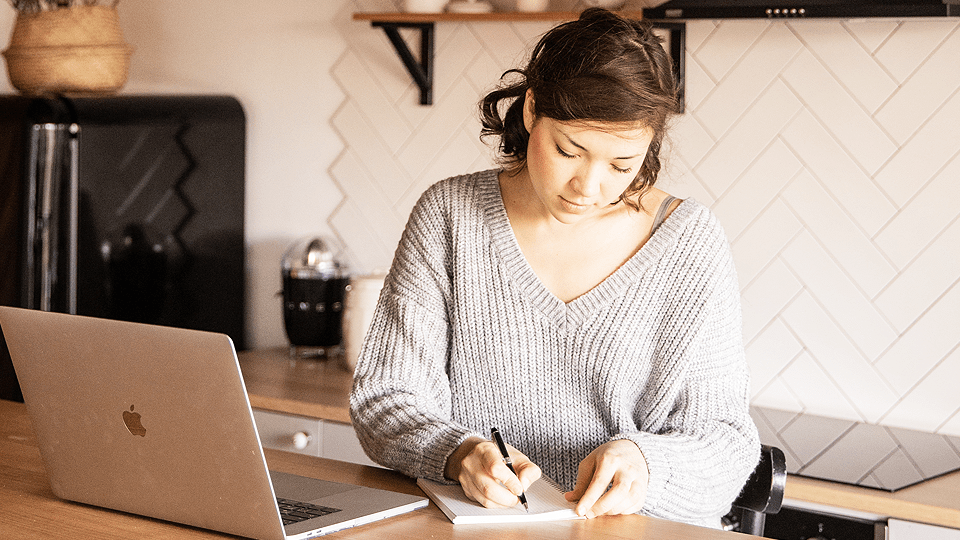Natural Disaster Preparedness

Are you and your family prepared for a natural disaster?
To bring awareness to the importance of being prepared, FEMA and the U.S. Department of Homeland Security has designated September as National Preparedness Month. Since 2004, FEMA has used the month of September to highlight the importance of being prepared and the steps you should take to protect yourself and family.
Do you have a plan for what you and your family will do should a natural disaster strike your home or area?
Whether it is a natural or man-made disaster, wherever you live is susceptible to some form of disaster. Hurricanes, tornados, blizzards, earthquakes, fires, and even volcanos can create natural disasters in the United States. Man-made disasters can take the form of chemical releases and explosions. Regardless of the type of disaster, the impact on your family can be significant should a disaster strike. It is for this reason that being prepared is so important. Your family’s emergency plan is the key to taking control during the disaster to minimize its impact.

Build Your Emergency Kit
- - Non-perishable food and water sufficient for the size of your family. Don't forget a manual can opener!
- - Batteries, cell phone chargers, and solar chargers
- - First aid kit, flashlights, radios, medications (prescription and non-prescription)
- - Spare glasses, contacts, and contact solution
- - Books, games, puzzles for children
- - Contact list: family, friends, neighbors, banks, insurance, and utilities

Make a Plan
- - How will I receive emergency alerts and warnings? This should include alternate means should power and/or cellular networks are impacted
- - What is the family communication plan? In our busy world, family members may be scattered across different locations. A plan to stay in touch and coordinate with each other is critical to your emergency plan
- - What is our evacuation route? Do you know the best route to take to your shelter, or to leave the disaster area?

Prepare Your Pets
- - Medications and grooming items
- - Stock extra pet food, treats and water
- - Coordinate care plans with neighbors, family, and friends as back up for one another
- - If you evacuate, pack bedding and toys to reduce their stress